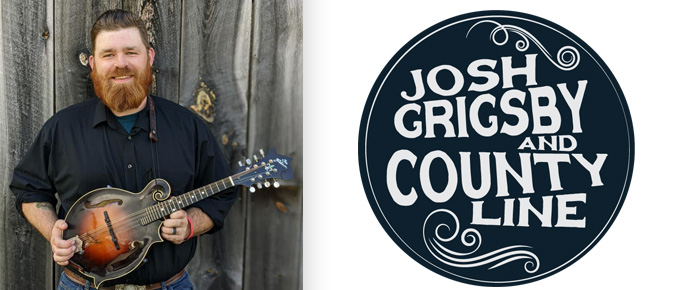Songwriters call for full transparency around US song royalty rate settlement deal

Table of Contents
Business News Digital Labels & Publishers Lawful Major Stories
By Chris Cooke | Published on Wednesday 5 Oct 2022

The New music Creators North The us organisation has called on the US Copyright Royalty Board to make general public the arrangement achieved between the audio publishers and the streaming products and services relating to the prices to be paid out by the latter for the streaming of tunes in the many years in advance. MCNA claims that all songwriters need access to an “un-redacted duplicate of the settlement underneath thought in its entirety, which include any and all similar or potentially associated agreements”.
In the US, what royalties are paid by streaming solutions to new music publishers and songwriters is established by a panel of judges regarded as the Copyright Royalty Board. That is mainly because there is a obligatory licence covering the mechanical copying of songs beneath US copyright regulation. As a consequence, each couple a long time the CRB decides what percentage of streaming revenues ought to be allocated to the track legal rights less than that compulsory licence.
There has been a great deal disagreement in modern many years about what the simple profits share allocation should really be, as perfectly as more than other technicalities contained inside the obligatory licence. As the CRB started off to take into consideration what costs it should set for the future five yrs, the songs publishers proposed an boost from the existing 15.1% to a thing closer to 20%, though some of the streaming expert services were proposing a little something a lot more like 10.5%.
Nevertheless, in August a offer was done between the publishers – repped by the Nationwide New music Publishers Affiliation – and the streaming solutions, meaning a total expensive and time-consuming royalty amount battle before the CRB was prevented.
Less than that deal, there will be a extremely slight improve in the song royalty more than the up coming five years, up to 15.35%. That will keep the US in line with the streaming monies allotted to the track legal rights somewhere else in the environment – truly, in the main it’s a little bit a lot more – plus the publishers acquired some of these technicalities reformed in their favour.
The offer was broadly welcomed throughout the new music publisher and songwriter communities, not the very least simply because it intended that the music publishing sector wouldn’t have to spend a total load of time and income battling the streaming companies in entrance of the CRB.
However, considering that the deal was announced, and as formalities at the CRB in relation to the offer have started to go via the motions, some concerns have been elevated by some songwriters in relation to some facets of the offer, in certain all around transparency.
Among the people raising issues is George Johnson, the songwriter who has been the most proactive personal in new CRB proceedings, with organisations like the MCNA backing him up.
In a submission to the CRB yesterday, the MCNA writes: “We would like to specific our severe dismay in excess of the joint response dated 26 Sep 2022 filed by the Nationwide Audio Publishers Affiliation, the Nashville Songwriters Association Worldwide and a variety of digital new music distributors in opposition to participant George Johnson’s the latest movement to compel disclosure of those groups’ unpublished, privately negotiated, proposed streaming level deal”.
“We are deeply worried by these latest initiatives to protect solution dealings by get-togethers whose passions are probably in conflict with those of audio creators”, it goes on, “and firmly believe that that submitting a proposal urging the CRB to interact in an motion that would be in flagrant violation of the necessary disclosure, transparency and comment provisions established forth in the US Copyright Act signifies a pursuit of very questionable enthusiasm that need to not be permitted to influence CRB policy”.
Noting a filing previously this week by the NMPA and Google, the letter adds: “Our worries in this regard are immeasurably heightened by the filing past evening of a joint discover of lodging by NMPA and Google containing admissions that most likely ‘related agreements’ were executed between Google and specific of the audio publisher endorsers of the proposed streaming settlement ‘on or all over the execution day of the settlement agreement’ which they regard as superfluous and ‘substantively unrelated’ to the proposed settlement for which CRB acceptance and adoption is remaining sought”.
The letter then highlights that US copyright legislation suggests that these impacted by any CRB amendments to royalty prices need to be presented the option to post reviews on all those amendments.
“In purchase to satisfy the Congressional mandate that influenced events be provided prospect to comment upon non-public agreements negotiated by members to the proceedings prior to their adoption or rejection by the CRB”, it continues, “we respectfully urge the CRB to timely publish an un-redacted copy of the agreement below thought in its entirety, together with any and all related or probably related agreements the existence of some of which are currently acknowledged by NMPA and Google”.
That is expected, it suggests, “so that the unbiased songs creator group and all fascinated and impacted events are afforded the requisite time and full information and facts important to adequately critique and assess the proposal in whole. That prospect is a sine qua non [essential condition] to formulating total and cogent reviews for CRB thought, as mandated by statute”.
It continues to be to be noticed if the massive aged offer among the publishers and the services – and particulars of any facet promotions – are in fact produced completely community and, if so, irrespective of whether there will be any features of people documents that trigger some or all of the songwriting local community to transform their feeling on the greatly welcomed settlement.









